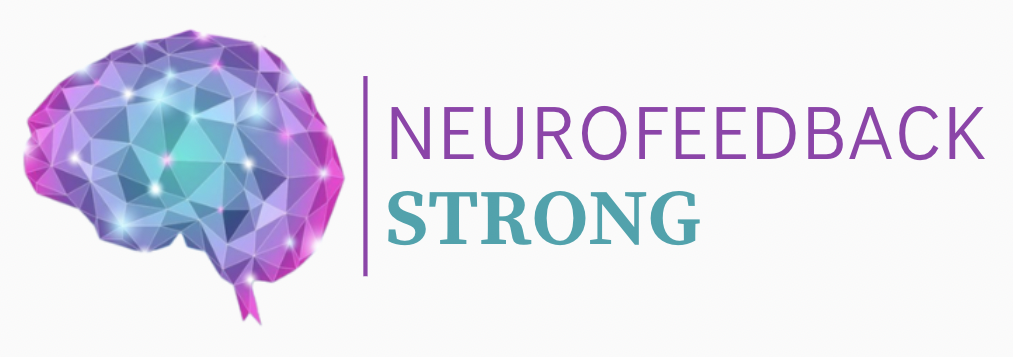
Welcome to my Blog
Thanks for being here! I typically post a wide range of topics, including my own story with Anxiety and how I've been able to overcome it with Neurofeedback. Additionally, I share other peoples' stories of their mental wellness journey, educational content around Neurofeedback and IASIS Microcurrent Neurofeedback, and stories of healthcare professionals who are helping others achieve mental wellness.

Enhance Your Mental Clarity Naturally: Tips and Tricks
Ever feel like your brain is in a fog? You're not alone. Mental clarity is super important for getting through your day with focus and energy. Luckily, there are simple ways to naturally boost your mental sharpness. From getting good sleep to eating the right foods, these tips can help you think more clearly and feel better overall.
Key Takeaways
Getting enough quality sleep is essential for a clear mind.
Eating nutritious foods can boost brain function.
Regular physical activity improves mental clarity.
Mindfulness and meditation can help you focus better.
Managing stress is crucial for mental sharpness.
Prioritize Quality Sleep
Quality sleep is essential for maintaining mental clarity and overall well-being. Making sleep a non-negotiable part of your routine can significantly improve your cognitive functions, such as memory and decision-making. Here are some tips to help you prioritize quality sleep:
Establish a Sleep Routine
Creating a consistent sleep schedule helps regulate your body's internal clock. Try to go to bed and wake up at the same time every day, even on weekends. This practice can help you fall asleep faster and wake up feeling more refreshed.
Create a Restful Environment
Your sleep environment plays a crucial role in how well you sleep. Make your bedroom a sanctuary for rest by keeping it cool, dark, and quiet. Consider using blackout curtains, earplugs, or a white noise machine to minimize disruptions.
Limit Stimulants Before Bed
Avoid consuming caffeine or other stimulants in the hours leading up to bedtime. These substances can interfere with your ability to fall asleep and stay asleep. Instead, opt for a calming bedtime routine, such as reading a book or taking a warm bath.
Quality sleep is like a deep cleanse for your brain, helping with everything from memory to decision-making. Make time to get quality sleep regularly.
Adopt a Nutritious Diet
Eating well is not just good for your body; it also benefits your brain. A balanced diet can help you stay sharp and focused. Healthy eating habits may lower risk of cognitive decline and dementia later in life.
Engage in Regular Physical Activity
Regular physical activity is essential for maintaining both physical and mental health. Exercise can reduce feelings of depression and stress while enhancing your mood and overall well-being. Here are some tips to help you stay active and enjoy the benefits of exercise.
Practice Mindfulness and Meditation
Start with Short Sessions
Begin your mindfulness journey with brief sessions. Even a few minutes of calm can help boost mental clarity and reduce stress. Over time, you can gradually increase the duration as you become more comfortable.
Use Guided Meditations
Guided meditations are a great way to start if you're new to mindfulness. They provide structure and can help you focus on the present moment. There are many resources available online to help you get started.
Integrate Mindfulness into Daily Tasks
Mindfulness isn't just about sitting still. You can practice it while doing everyday activities like washing dishes or walking. By being fully present in these moments, you can make mindfulness a part of your daily routine.
Practicing mindfulness through meditation reduces mental clutter over time and helps to keep your mental desktop tidy.
Manage Stress Effectively
Learning to manage stress effectively can take the weight off your cognitive function and let your mind breathe. From deep breathing exercises to a walk in nature, find what helps you unwind.
Identify Stress Triggers
Knowing how to effectively reduce stress levels will make a tremendous difference to your state of mental clarity. Managing stress includes figuring out personal methods of tension release and relaxation. There are also stress tracker devices that allow you to track your stress levels throughout the day. Being aware of your stress levels will enable you to stay mentally sharp and help you reach your full potential.
Develop Healthy Coping Mechanisms
See our pages on stress for tips on dealing with pressure and coping with stressful events. FOCUS ON THE PRESENT Paying attention to the present moment or your senses can be helpful. This is sometimes called mindfulness. You can use techniques such as meditation or breathing exercises. Or you can practise mindfulness by paying more attention to your senses while doing things you do each day, for example, while washing up or eating.
Seek Professional Help if Needed
DO SOMETHING YOU ENJOY Try to make time to do an activity you like on a regular basis. This could be cooking a meal, getting in touch with a friend or watching TV. TRY TO MANAGE STRESS If you're under a lot of pressure, you may start to feel overwhelmed or out of control. Stress can also cause physical effects on our bodies. See our pages on stress for tips on dealing with pressure and coping with stressful events. FOCUS ON THE PRESENT
Create a Conducive Environment
Creating a conducive environment can significantly enhance your mental clarity. A well-organized space can reduce distractions and improve focus. Here are some tips to help you create a more supportive environment for your mind.
Declutter Your Space
A cluttered space can lead to a cluttered mind. Take time to organize your surroundings. This can help you feel more in control and less overwhelmed.
Minimize Distractions
Identify and eliminate sources of distraction in your environment. This might include turning off notifications on your phone or finding a quiet place to work.
Incorporate Natural Elements
Bringing elements of nature into your space can have a calming effect. Consider adding plants, natural light, or even nature sounds to your environment.
When you notice your ability to concentrate wavering, take a 20-30 minute break to recharge mentally. Step outside for fresh air, enjoy a snack, listen to music - anything that relaxes your mind.
Stay Mentally Active
Keeping your mind engaged is just as important as keeping your body fit. Activities that challenge your brain can help prevent memory loss and keep your mind sharp.
Foster Social Connections
Spend Quality Time with Loved Ones
Spending time with family and friends can greatly improve your mental clarity. Connecting with others can help us have a greater sense of belonging and reduce feelings of loneliness. Try to set aside regular time to be with those you care about, whether it's having dinner together, going for a walk, or just chatting.
Join Clubs or Groups
Joining clubs or groups that interest you is a great way to meet new people and create positive social habits. Whether it's a book club, a sports team, or a hobby group, being part of a community can boost your mental well-being. It also provides a sense of purpose and belonging.
Volunteer in Your Community
Volunteering your time to help others can give you a sense of purpose and help you meet people. Small acts of kindness, like holding a door open or making someone a cup of tea, can also make a big difference. Look for local volunteer opportunities to get involved and make a positive impact in your community.
Conclusion
Improving your mental clarity doesn't have to be complicated. By following these simple tips, you can make a big difference in how sharp and focused you feel every day. Remember, it's all about taking small steps and being patient with yourself. Whether it's getting enough sleep, eating well, or practicing mindfulness, each action you take helps build a clearer, more active mind. So, start today and see how these changes can lead to a more productive and fulfilling life.
Frequently Asked Questions
What is mental clarity?
Mental clarity means having a clear and focused mind. It helps you think, learn, and make decisions better.
How can I improve my mental clarity naturally?
You can improve mental clarity by getting enough sleep, eating healthy foods, exercising regularly, and practicing mindfulness.
Why is sleep important for mental clarity?
Quality sleep helps your brain rest and recharge, making it easier to think clearly and stay focused during the day.
What foods boost brain health?
Foods like fish, nuts, berries, and leafy greens are good for your brain. They help improve memory and focus.
How does exercise help with mental clarity?
Exercise increases blood flow to the brain, which helps improve mood and focus. It also reduces stress and anxiety.
Can stress affect mental clarity?
Yes, stress can make it harder to think clearly. Learning to manage stress through relaxation techniques can help improve mental clarity.
